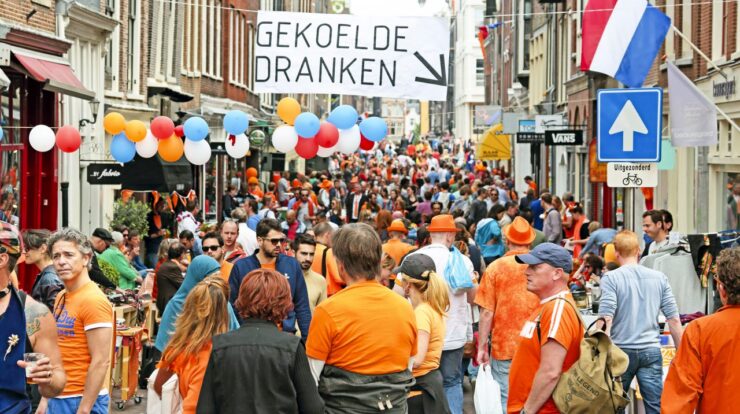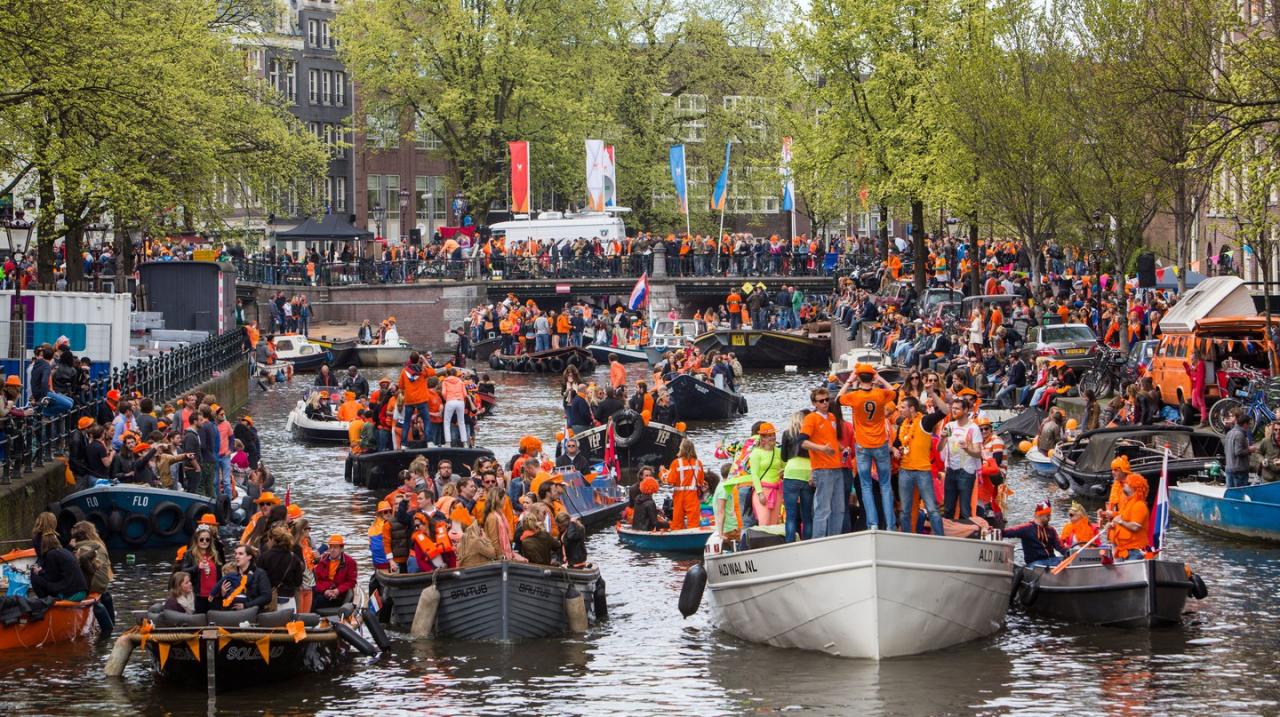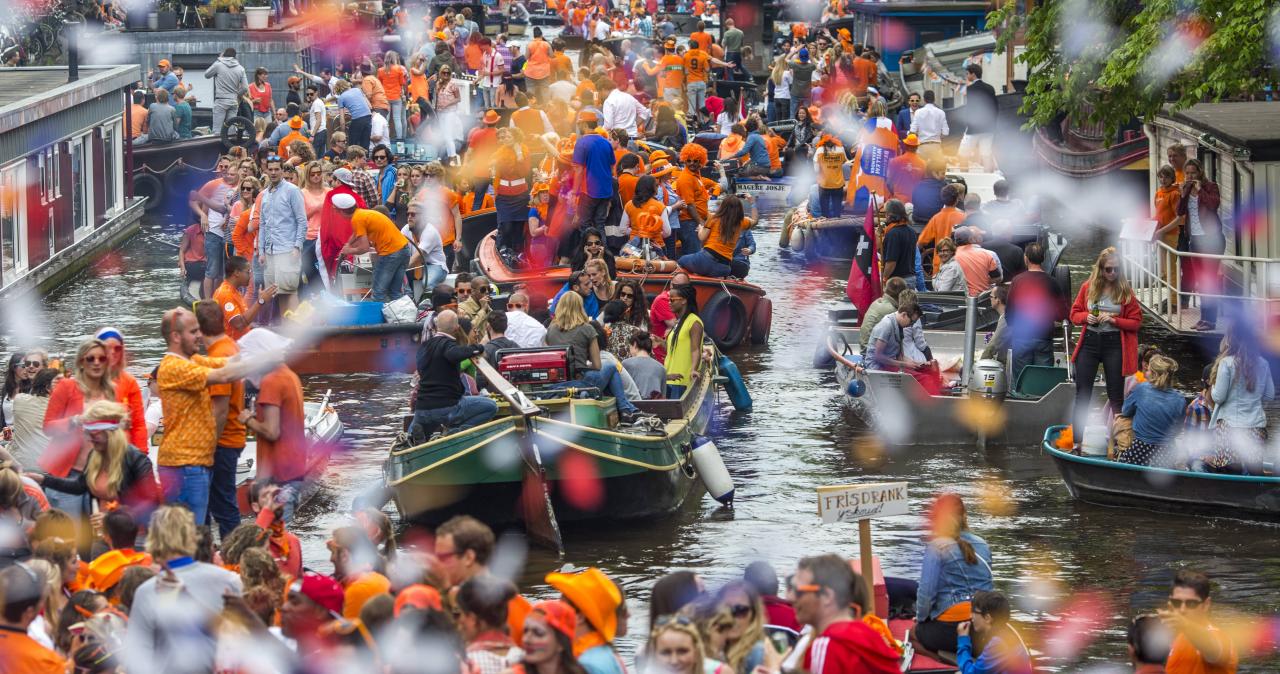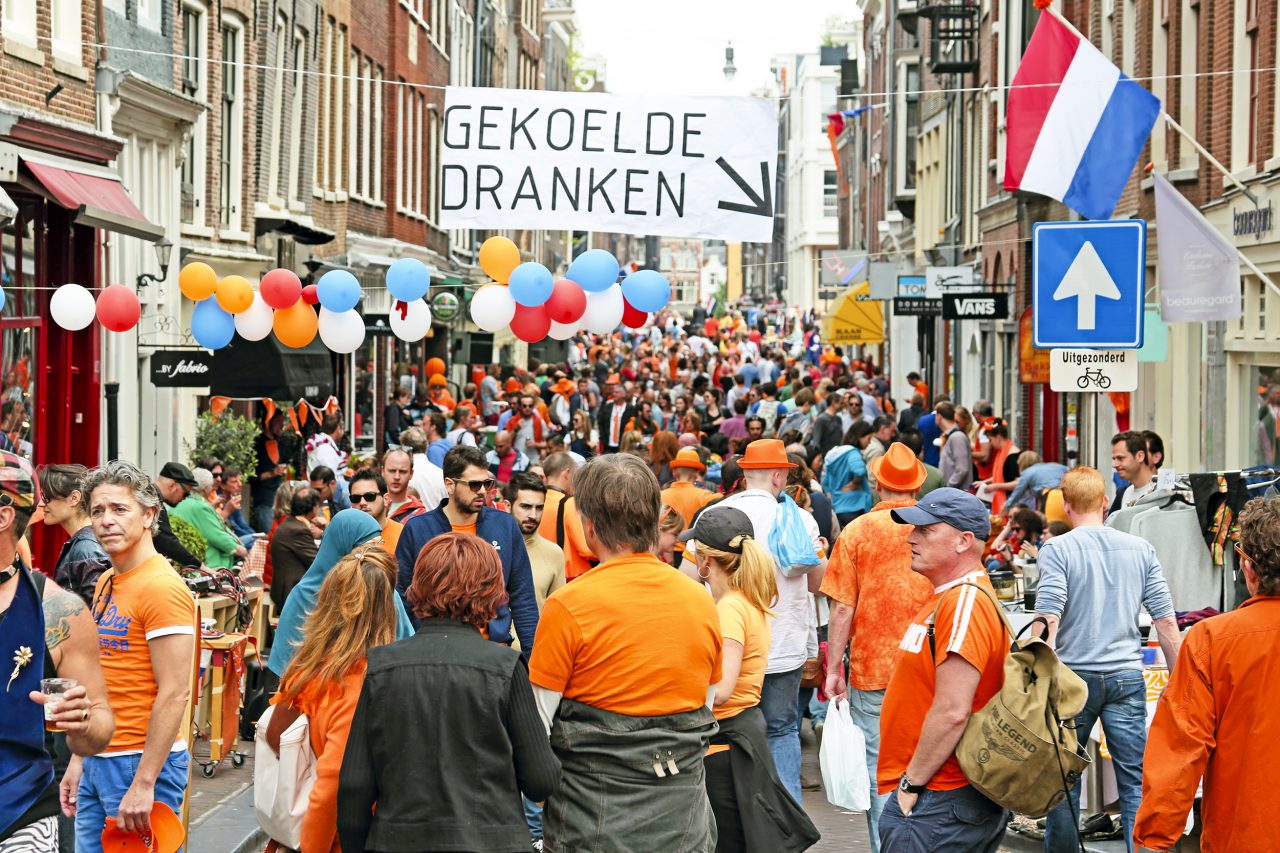
King’s Day Netherlands, an annual spectacle of orange-clad revelry, immerses the nation in a kaleidoscope of traditions, customs, and festivities. This cherished event, steeped in history and cultural significance, transforms the Netherlands into a vibrant tapestry of joy and national pride.
The origins of King’s Day can be traced back to the 19th century, when it was known as Queen’s Day in honor of Queen Wilhelmina. Today, the celebration commemorates the birth of King Willem-Alexander, the current monarch of the Netherlands.
King’s Day in the Netherlands: A Celebration of National Unity

King’s Day, also known as Koningsdag, is a national holiday in the Netherlands celebrated annually on April 27. It marks the birthday of the reigning monarch, currently King Willem-Alexander, and is a time for festivities, orange-themed decorations, and a nationwide flea market.
Traditions and Customs
King’s Day is characterized by several traditional activities and customs. The most prominent feature is the wearing of orange clothing and decorations, as orange is the color of the Dutch royal family.
Another tradition is the nationwide flea market, known as “vrijmarkt.” People set up stalls to sell unwanted items, creating a vibrant and lively atmosphere throughout the country.
Celebrations in Major Cities
| City | Events | Activities | Attractions |
|---|---|---|---|
| Amsterdam | Royal Procession, Canal Parade, Vrijmarkt | Street performances, music concerts, fireworks | Anne Frank House, Rijksmuseum, Van Gogh Museum |
| The Hague | King’s Day Concert, Beach Volleyball Tournament, Vrijmarkt | Food stalls, live music, fireworks | Mauritshuis, Binnenhof, Madurodam |
| Rotterdam | Harbor Festival, Fireworks Show, Vrijmarkt | Street parties, boat races, concerts | Euromast, Kunsthal, Boijmans Van Beuningen Museum |
| Utrecht | Student Music Festival, Vrijmarkt, Street Parade | Food trucks, live music, street performers | Dom Tower, Miffy Museum, Centraal Museum |
Economic Impact, King’s day netherlands
King’s Day has a significant economic impact on the Netherlands. The nationwide flea market generates revenue from sales and attracts tourists who spend money on accommodation, food, and other services.
Retail businesses also benefit from the increased foot traffic and sales during the holiday. The estimated economic impact of King’s Day is around €600 million annually.
Cultural Significance
King’s Day holds great cultural significance for Dutch society. It is a time for national pride and unity, as people from all walks of life come together to celebrate their monarch and their country.
The holiday also promotes Dutch culture and traditions, with the orange decorations, flea markets, and music festivals showcasing the country’s heritage.
Evolution over Time
- 1885: First celebrated as Queen’s Day in honor of Queen Wilhelmina.
- 1948: Renamed King’s Day after Queen Juliana ascended to the throne.
- 1980: Orange became the official color of the holiday.
- 2013: King Willem-Alexander ascended to the throne, and the holiday was celebrated as King’s Day for the first time.
- 2020-2021: Celebrations were canceled due to the COVID-19 pandemic.
International Recognition
King’s Day is recognized and celebrated internationally. Dutch communities around the world organize events and gatherings to commemorate the holiday.
In 2017, the United Nations declared King’s Day an official holiday for its staff in the Netherlands.
Closure

King’s Day Netherlands stands as a testament to the rich cultural heritage of the Dutch people. Its traditions, customs, and festivities not only foster a sense of national unity but also showcase the vibrant spirit of the Netherlands. As the nation comes together to celebrate this beloved event, it is a reminder of the enduring power of tradition and the enduring bonds that unite a people.
General Inquiries: King’s Day Netherlands
When is King’s Day celebrated?
King’s Day is celebrated on April 27th, the birthday of King Willem-Alexander.
What is the significance of orange clothing and decorations?
Orange is the color of the Dutch royal family, and wearing orange on King’s Day is a way to show support for the monarchy and celebrate Dutch culture.
What are some of the traditional activities associated with King’s Day?
Traditional activities include flea markets, street parties, music performances, and boat races.

